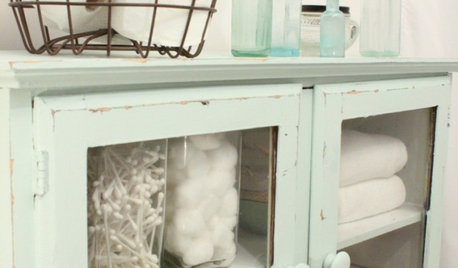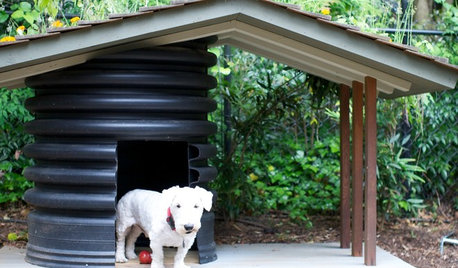I need HELP with fermentation
pixie_lou
9 years ago
Related Stories

EXTERIORSHelp! What Color Should I Paint My House Exterior?
Real homeowners get real help in choosing paint palettes. Bonus: 3 tips for everyone on picking exterior colors
Full Story
ENTRYWAYSHelp! What Color Should I Paint My Front Door?
We come to the rescue of three Houzzers, offering color palette options for the front door, trim and siding
Full Story

HOUSEKEEPINGThree More Magic Words to Help the Housekeeping Get Done
As a follow-up to "How about now?" these three words can help you check more chores off your list
Full Story
ORGANIZINGDo It for the Kids! A Few Routines Help a Home Run More Smoothly
Not a Naturally Organized person? These tips can help you tackle the onslaught of papers, meals, laundry — and even help you find your keys
Full Story
LIFEDecluttering — How to Get the Help You Need
Don't worry if you can't shed stuff and organize alone; help is at your disposal
Full Story
HOUSEKEEPINGWhen You Need Real Housekeeping Help
Which is scarier, Lifetime's 'Devious Maids' show or that area behind the toilet? If the toilet wins, you'll need these tips
Full Story
PETSHow to Help Your Dog Be a Good Neighbor
Good fences certainly help, but be sure to introduce your pup to the neighbors and check in from time to time
Full Story



matthias_lang
matthias_lang
Related Professionals
Surprise Landscape Contractors · Bergenfield Landscape Contractors · Berkeley Heights Landscape Contractors · Cincinnati Landscape Contractors · Dunwoody Landscape Contractors · East Chicago Landscape Contractors · Lebanon Landscape Contractors · Middleton Landscape Contractors · Munster Landscape Contractors · Northbridge Landscape Contractors · Paso Robles Landscape Contractors · Snoqualmie Landscape Contractors · West Palm Beach Landscape Contractors · East Norriton Roofing & Gutters · Orlando Roofing & Guttersbeesneeds
digdirt2
pixie_louOriginal Author
2ajsmama
digdirt2
pixie_louOriginal Author
pixie_louOriginal Author
pixie_louOriginal Author
digdirt2
pixie_louOriginal Author
seysonn
matthias_lang
defrost49
seysonn
defrost49
seysonn
gardengalrn
canfan
digdirt2
defrost49
pixie_louOriginal Author
digdirt2
pixie_louOriginal Author
digdirt2